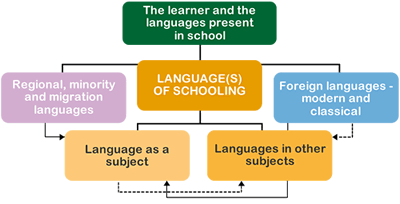The Unit's current project on ‘Language policies and the right to education for social inclusion 2010-2014’ expands the scope of consideration beyond the domain of foreign modern languages by including languages of schooling – learning, teaching and assessment of languages taught as school subjects, language competences required for other school subjects – language across curriculum – and regional, minority and migration languages. With this new instrument the Language Policy Unit once more draws the attention to the needs of the individual learner, underlining that access to education and success at school heavily depend on language competences. Some learners may be disadvantaged at school because their competences do not match the school’s expectations: children from socially disadvantaged backgrounds, children from migrant families, or children whose first language is a regional or a minority language.

An adequate command of the language(s) of schooling is crucial to success at school and social advancement. A major challenge for today’s education systems is then to support learners in acquiring adequate language and intercultural competences which will enable them to develop as strong individuals and operate effectively and successfully as citizens.
Regional, minority and migration languages are equally part of this project including work on the linguistic integration of adult migrants. They are a valuable component of the plurilingual repertoires of the learners when they enter the school; as plurilingualism is a condition to participate in democratic and social processes in multilingual societies. The Language Policy Unit’s education project aims at providing policy guidelines and reference tools designed to assist the learners in developing their language repertoires in a lifelong learning perspective. For example, a concept paper and supporting toolkit has been developed to facilitate the education of children with migrant backgrounds.
 The rationale for the ECML programme 2012-2015
The rationale for the ECML programme 2012-2015